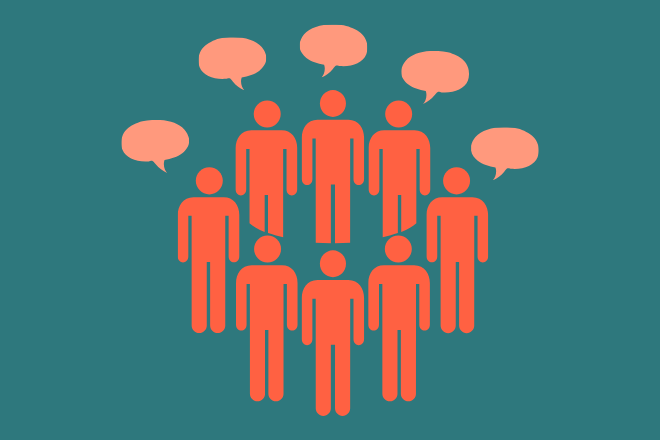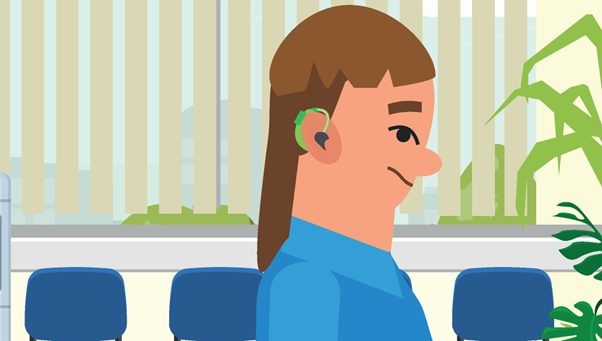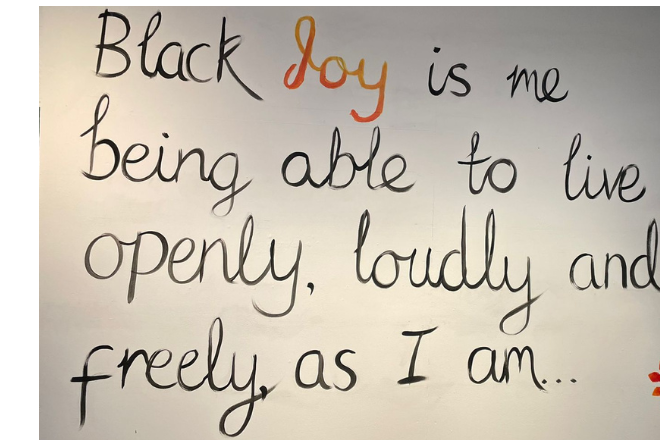Date of publication: 18 January 2021
How can co-production happen in prisons and why does it matter that it does? We have two great guest authors with us to share their reflections - Paula who works in prisoner engagement for the Prison Reform Trust and has lived experience of imprisonment. And Chantal who is a research fellow at UCL specialising in justice and public health.
Thoughts from Paula
For anyone who has the intention to co-produce outcomes with prisoners, this blog may be both illuminating and disappointing. Genuine co-production takes place among people and within systems, where there is true equity and equality; where respect for others, understanding of human connection, inclusivity, diversity and notions of co-operation and collective responsibility exist, or are, at the very least, a destination. So how do we start heading to that destination and how do we know if we are on our way? What work do we have to do in order to prepare ourselves? It starts with self. It is perfectly possible to be part of a community and not fully recognise power, privilege and bias, and how such operate to maintain the status quo and the insidious legacy of inequitable systems. When seeking to involve others who have a clear line of sight into inequality and inequity through the actual unadulterated lived experience of it, failure to acknowledge these conditions and to seek to manipulate co-production as a means to achieve compliance is a highly sophisticated act of power protectionism. A man serving a prison sentence told me recently that his support worker had previously been a police officer and he initially thought that he couldn’t build a relationship with him. But when the former police officer explained why he did the job he did, why he had left - he understood that he couldn’t arrest his way out of crime was compelled to seek change for those caught in this poverty cycle - a relationship of trust was born.
The power shift that occurs when researchers and practitioners share first of themselves, of their perspectives, of their own moral and ethical frameworks, in arenas where professionals often hide behind both metaphorical uniform and actual uniforms symbolising professional identity and moral superiority, is immense. In these moments allyship emerges.
Contact with any part of the criminal justice system as a service user is the most dramatic exposure to state authority. You do not need to be a sociologist to see and name power within prison. Courts have sentenced individuals to imprisonment; they are then transported handcuffed to prison, and on arrival individuals are forcibly strip searched naked, orifices examined and their personal possessions symbolically taken away.
Failure to acknowledge the institutional violence within the prison walls is an abject failure in the journey to co-production.
How do we then come to understand how to navigate and dismantle structures of oppression and power? First we must deeply commit to questioning of ourselves, seek to oppose the injustices of magnitude and the micro aggressions that we witness, and sit with these life experiences and knowledge of self to equip ourselves to operate more authentically and with integrity in the world that is built on historical and embedded injustice. You cannot start with “the other” and preparing “the other” for the process. This is arrogance, the antithesis of collective responsibility of fairness and preparation of the requisite preconditions for co-production. A precursor to genuine co-production is a deep and meaningful self-education and interrogation with self about power, systems, structures, oppression, imperialism, capitalism and rationales for punishment. Co-production is an emancipatory ideology; one that frees us all from captivity if we recognise its foundation in freedom from oppression. Preparation for co-production in prisons requires true motivation and intention, and a psychological and even spiritual readiness to oppose injustice and to share, firstly, our own power. Co-production within current systems of oppression, where one group has more power than another, requires not just people to be accommodating of different views and experiences, but requires a shift in power and narrative in favour of those with less. And this requires commitment and movement beyond self interest into action. Only once self-preparation has begun - and it’s a lifelong process - can co-production start. This is critical because those at the sharp end of the criminal justice system are highly attuned to abuses of power. These are directly experienced, felt and endured; such deep life experiences creating deep sensitivity to abuse and displays of power and creating gulfs in understanding and trust. To summarise then; genuine co-production recognises the existence of power; who holds it, who does not and how it manifests within relationships and how it impacts on outcomes; if this isn’t happening then it isn’t co-production. And, co-researchers won’t be ready to listen to each other, to value each other, let alone work together to achieve meaningful change.
Thoughts from Chantal
I’ve been undertaking research projects in prisons for several years now and so wanted to reflect on some of the practical things that you need to do in order to undertake co-production in these settings. Firstly, there are permissions you need to get started. You need to go through two ethics committees including a prison specific one and then once you have ethical approvals, you need to get local Governor approvals before you can enter their prison. Once you have these permissions you need to be able to recruit people to your co-production activities. When you don’t work in a prison that can be pretty tricky. You don’t know anyone there, you aren’t a familiar and trusted face, and you probably can’t even move freely around the prison without someone escorting you through the gates. You also need to get familiar with the prison regime. People will only be allowed to move around at certain times of day, and will have other commitments such as work or family visits; you need to plan your co-production activities so they fit within the daily regime. Once you’ve got your head around these things then there are a few extra considerations before running your events. You need to find a way to advertise what you’re doing and let people know it’s a legitimate project to be part of. Then, once people have expressed an interest in taking part, their participation needs to be cleared by security in the prison. Finally, on the day you have to be able to get people to the event – if there’s an unexpected event or lockdown then your event won’t run! However, once you get to the point of running your event in prison then you’ll no doubt find it exceptionally rewarding and productive. I’ve found that people in prison are really engaged in trying to improve things, and able to give so much insight into solving problems and developing innovative solutions. One thing I dislike about prison research is that we aren’t allowed to compensate people for the time they dedicate to the research activities; this is a rule set by the prison service, and is in place to ensure people don’t feel coerced into participation. Although there’s a clear rationale around why this rule is in place, it does sometimes feel unfair because we would pay people for their time in the community if they wanted to be paid. We try to make sure we at least take in lots of sweet treats to eat during the research activities! I’ve found that it is best to work with a trusted party in the prison, someone to help you plan and deliver your research activities. I’ve worked with both the healthcare teams in prisons and the service user/ lived experience organisations, such as the Prison Reform Trust. Both have been excellent at supporting the research, but it is that the service user organisations that have the best insight and acceptance. It’s much better to let these organisations lead on the engagement and for you, as the researcher, to take a back seat. That way you’re far more likely to get honest, open and meaningful input and build a trusting relationship to underpin your co-production.

Thoughts from Co-Production Collective
Clearly, there is much to be done to ensure the untapped into voices of prisoners can reach academia. Reform is more pressing than ever, as the pandemic exposes serious failings of the prison system, as detailed in the annual report of HM Chief Inspector of Prisons. This blog is part of an ongoing series where we highlight specific groups in our society who are sometimes even excluded from what is supposed to be a wholly inclusive activity - co-production. Marginalisation has other deep societal roots, not necessarily connected to imprisonment but more to do with other age-old concepts such as gender and sexuality. We will explore these in other upcoming blogs. We feel it is vital we all take the time to reflect on our co-production activities to make sure that those who, for whatever reason, find themselves on the margins of society are not exploited or excluded in the name of research, policy or service development.
Some more reading:
- Co-production, participation and empowerment: A participatory evaluation of a young care leavers project in prison, Christopher Hartworth, Dawn Simpson, Helen Attewell, Probation Journal, December 30, (2020)
- “It’s Us Doing It!” The Power of Participatory Action Research in Prison: A Contradiction in Terms? – Phase 1. Maria Haarmans, PAR Team (Aaron, Dean, Iain, KT, Lee, Paul, Stefan, Steven), Elizabeth Perkins &Lorna Jellicoe-Jones (2020). International Journal of Forensic Mental Health
- How Best to Engage Users of Forensic Services in Research: Literature Review and Recommendations, Birgit Völlm, Sheena Foster, Peter Bates & Nick Huband, International Journal of Forensic Mental Health, Volume 16, (2017), Issue 2 pp. 183-195
- Read about the beginnings of ethical guidelines and where they are now in the book chapter ‘Get Your Hands Dirty: Emerging Data Practices as Challenge for Research Integrity’, Gerwin van Schie, Irene Westra and Mirko Tobias Schäfer, in Datafied Society (2017), pp. 183-200






.png)
.png)

.png)

.png)
.png)
